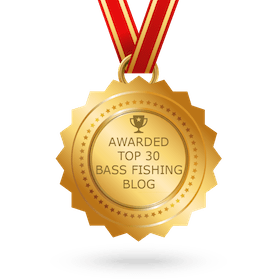Are the Fish You Catch Safe to Eat?
Reported By Don Gowan
Southern Fishing News Field Staff
The Alabama Department of Public Health; Alabama Department of Environmental Management; Alabama Department of Conservation and Natural Resources; and TVA have released the “2023 Alabama Fish Consumption Advisories”. (Area 1 covers North Alabama beginning on page 13 through page 17. Not all streams in the Decatur and Morgan Counties had fish consumption testing conducted.)

Last month, the Alabama Department of Public Health (ADPH) released its annual fish consumption advisories, which highlight the state’s recommended limits on the consumption of different species of fish found in Alabama’s rivers and streams. There were 216 fish consumption advisories issued in Alabama.
For this year’s update, fish were gathered from the Alabama, Coosa, Escatawpa, Tallapoosa, and Tennessee watersheds. They were then tested to determine which fish from those rivers contain levels of contamination hazardous to the health of Alabamians when consumed. After catching and testing certain types of fish, the state issues consumption advisories to warn anglers not to consume fish that are contaminated with dangerous pollutants like polychlorinated biphenyls (PCBs) and methylmercury. Many of the advisories warn not to eat any fish from the specific waterbody, while others recommend limiting exposure to one or two meals per month. Currently, no state agency is required by law to test fish tissue or post signage warning of harmful contaminants.
(67%) were issued specifically for largemouth bass-
For the past 10 years, Black Warrior Riverkeeper and other conservation groups across Alabama have collaborated to amplify and publicize the results to anglers throughout the state through education campaigns, social media, special events, surveys, and more.
“Fishing is a great tradition in Alabama, connecting generations to our abundant waterways and contributing to our massive outdoor recreation industry,” said Charles Scribner, executive director of Black Warrior Riverkeeper. “We are proud to promote fishing while working with partners to help folks make informed decisions about eating certain fish they catch.”

Click HERE to view the advisory.
The state’s fish consumption advisory program is the program at the heart of The SHOR Act, which was introduced with bipartisan support, and passed both the House and Senate in 2023. The SHOR Act would codify this program, requiring it to take place each year. The bill would also create a Blue Ribbon Fish Consumption Advisory Panel to meet annually to continue to improve the program for the health and safety of all Alabamians. Groups like Black Warrior Riverkeeper, Coosa Riverkeeper, Alabama Rivers Alliance, Conservation Alabama, and Waterkeepers Alabama feel that there are other areas in which this program could be improved, such as more frequent testing of the fish and expanding sampling for PFAS/PFOS.
In total, there are 216 health advisories across the state. While 20 advisories recommend not to [consume] any fish from those waterbodies, the majority of the advisories (67%) were issued specifically for largemouth bass — the most sought-after game fish in Alabama and, ironically, the official State Freshwater Fish of Alabama.
The statewide toll-free Fish Guide hotline has been updated to feature the 2023 advisories, broken down by watershed. This service, hosted by Coosa Riverkeeper, allows anglers to immediately hear the advisories throughout Alabama. The hotline is available in both English and Spanish. Anglers can simply call 1 844-219-RISK to hear the current fish consumption advisories on all the waterbodies throughout Alabama.
To learn more about the toxins in our fish and rivers, and for more information about FISH GUIDE, please visit blackwarriorriver.org/fish-consumption-advisories/ for a Black Warrior River watershed perspective or waterkeepersal.org/fish for a statewide perspective. To learn more about The SHOR Act, please visit ALShorAct.com.











